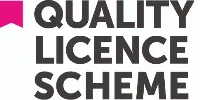
Facilities Management Advanced Diploma
Turbocharge your career prospects with a Facilities Management Advanced Diploma, brought to you exclusively by Oxford Home Study Centre. Explore the duties and responsibilities of facilities management personnel, with our dynamic facilities management classes for distance learning. Open for enrolment 365 days a year, there are no entry requirements to fulfil and no deadlines imposed on our facilities management courses. Learn how effective facilities management contributes to the success of the wider business, exploring key topics such as human resource management, quality management, building management, security management, sustainability, contracting, vendor management and how to create an emergency recovery plan. Study at a time and pace that suit your lifestyle, under the watch of your personally assigned tutor from start to finish. Get started on your property and facilities management course today, or contact a member of our student support team for more information.
Why Study Facilities Management?
Facilities management is a complex and demanding field, which comprises a long list of interconnected responsibilities. For the facilities manager, the goal is to ensure all assets and resources the business has access to are used effectively and efficiency. This means overseeing vendor relations, human resource management, physical infrastructure management, security management and more. As defined by the International Facilities Management Association (IFMA), facilities management “considers the coordination of people, place, process, and technology.” The facilities manager plays an important role at the heart of the successful organisation, ensuring everything comes together to support essential processes and operations. An ideal role for confident, ambitious and capable multitaskers, careers in facilities management can also be highly lucrative.
Our most advanced Level 5 Diploma in Facilities Management provides an intensive and comprehensive introduction to this fascinating and multi-dimensional occupation. Course content is delivered over a series of 10 modules, each of which concludes with an online assessment for submission to your assigned tutor:
Module 1. Introduction to Successful Facility Management
In the first module, candidates are introduced to the objectives of facilities management, along with the skills, knowledge and personal traits needed to succeed in the field. The concept of the annual work plan is also introduced, along with the importance of decisive leadership and flexibility in facilities management.
Module 2. Operations and Maintenance
The second module takes a fascinating look at marketing from a facilities management perspective, along with the reasons why some FM departments outsource various services. Several advantages and disadvantages of outsourcing are discussed, along with an introduction to move management from a facilities management perspective.
Module 3. Vendor Management & Outsourcing
An introduction to the vendor rating system follows in module three, in which candidates learn how to source and establish relationships with key sellers and service providers. Candidates also examine the learning cycle and the learning curve, along with the advantages of computerized systems in vendor management.
Module 4. Contracting and Types of Contracts
Module four discusses the functions of various different types of contracts, along with the four main elements of a contract and associated legal considerations. The differences between standard contracts and subcontracts is brought into discussion, along with the reasons why some agreements are legally required to be made in writing.
Module 5. Project Management
A detailed breakdown of the project life cycle is presented in module five, along with an overview of key project management roles and responsibilities. Candidates consider the differences between a project and routine work, the full features of the balance quadrant and a series of helpful tools/resources for more successful project management.
Module 6. Managing Quality in Projects
The sixth module turns attention to quality management, outlining the responsibilities of the facilities manager in ensuring all project objectives are met. Techniques and strategies for more effective quality management are discussed, along with the potential consequences of taking a passive approach to project quality management.
Module 7. Managing Human Resources
Key human resource management concepts are explored in the seventh module, which covers workforce training and development, staff deployment, delegation of duties, performance management and more. The importance of teamwork for effective facilities management is also explored.
Module 8. Facility Emergency Preparedness
A detailed definition of facility emergency preparedness is provided in module eight, along with the importance of approaching emergency planning as a continuous process. The responsibilities of the facilities manager in emergency planning are discussed, along with the three primary emergency categories and the importance of establishing an emergency operations centre.
Module 9. Facility Security Management
Module nine discusses the primary goals and objectives of facility security management, along with the security responsibilities of the facilities manager and the key components of a security plan. The four primary security planning areas are also discussed, along with the potential advantages and disadvantages of technology on the effectiveness of security management.
Module 10. Sustainability and Use of resources
Concluding the course, module 10 explores sustainability and the responsible use of resources from a facilities management perspective. The importance of prioritizing sustainability is discussed, along with how sustainability can have a direct impact on profitability and overall business performance.
Explore various free courses on our website. You can even take a start with one of our free Facilities Management courses today.


![<php echo $related_row['name']; ?>](https://www.oxfordhomestudy.com/images/subject/1693316677Diploma in Facilities Management QLS Level 4.webp)
![<php echo $related_row['name']; ?>](https://www.oxfordhomestudy.com/images/subject/1693316801Certificate in Facilities Management QLS Level 3.webp)
![<php echo $related_row['name']; ?>](https://www.oxfordhomestudy.com/images/subject/1693316855Advanced Diploma in Facilities Management QLS Level 7.webp)